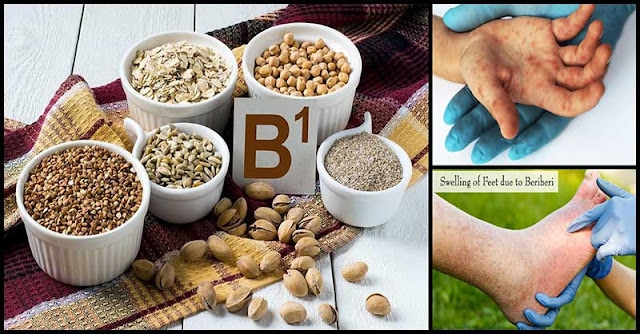Beriberi or thiamine deficiency is a condition caused by a vitamin B1 deficiency. It can occur to anyone who is poorly nourished and can affect almost all physiological functions like the liver, heart, nervous system, and vasculature.
There are two types of Beriberi: dry and wet beriberi. Dry beriberi usually affects the nervous system and can lead to decreased muscle strength and eventually, muscle paralysis, degeneration of the nerves and coma. On the other hand, wet beriberi affects the cardiovascular and circulatory system. In severe cases, it can cause heart failure. Delayed treatment of this disease may lead to permanent complications and can become life-threatening.
Role Of Thiamine in the Body
- Protect eye health and vision
- Promote Neurological health
- Support cardiovascular system
- Prevent Muscle Weakness, Spasms, and Soreness
- Help Promote Gut and Digestive Health
- Supports the metabolism and provides the body with higher energy levels
If you have a diet low in thiamine, then chances of developing beriberi are high. Aside from this, alcoholism is also a common cause of this disease as it inhibits the body from absorbing thiamine, thus leading to a deficiency. Some of the other causes of beriberi are as follows:
- undergoing kidney dialysis
- hyperthyroidism (overactive thyroid gland)
- extreme nausea and vomiting in pregnancy
- AIDS
- genetic beriberi, a rare condition that prevents the body from absorbing thiamine
- prolonged diarrhea or use of diuretics (medication that makes you urinate more)
- bariatric surgery
Symptoms of Beriberi
For dry beriberi symptoms may include:
- muscle pain
- tingling or loss of feeling in the feet and hands
- decreased muscle function, particularly in the lower legs
- vomiting
- difficulty speaking
- involuntary eye movement
- mental confusion
- paralysis
Meanwhile, wet beriberi symptoms include:
- rapid heart rate
- swollen lower legs
- waking up short of breath
- shortness of breath during physical activity
In extreme cases, beriberi can cause damages to the regions of the brain called thalamus and hypothalamus. It can cause memory loss, hallucinations, inability to form new memories, and visual problems such as rapid eye movement and double vision.
Beriberi Prevention
Include these top thiamine-rich foods in your diet to prevent beriberi:
- Macadamia Nuts
- Green Split Peas
- Pinto beans
- Mung Beans
- Black Beans
- Lentils
- Navy Beans
- White Beans
- Sunflower Seeds
- Nutritional Yeast
- Seaweed (Such as Spirulina)
- Asparagus
- Brussels Sprouts
- Beef Liver
- Spinach
- Eggplant
- Sesame seed
- Potatoes
- Sun-Dried Tomatoes
- Wild Caught fish such as herring and salmon
Home Remedies for Beriberi
Brussels Sprouts
Eating a serving of raw Brussel sprouts at least twice a week can provide your body with the needed vitamin C which is needed for the treatment of beriberi.
Bell Pepper
Bell pepper is a rich source of vitamin C. Regularly adding this to your meal can help reduce the symptoms of the disease.
Indian Gooseberry
Indian gooseberry contains sizeable quantities of vitamin C. Simply mix it with honey and consume about three times per day to increase the measure of Vitamin C content in the body.
Papaya
Being a source of vitamin C, papaya can help reduce symptoms of beriberi. Eat this fruit as often as you like.
Aloe Vera
Found in aloe vera are different vitamins and minerals. It contains vitamins A, C, E, choline, folic acid, B1, B2, B3 (niacin), B6, and vitamin B12. It is also a rich source of calcium, chromium, iron, copper, potassium, sodium, zinc, magnesium, selenium, and manganese that can help fight symptoms of beriberi.









